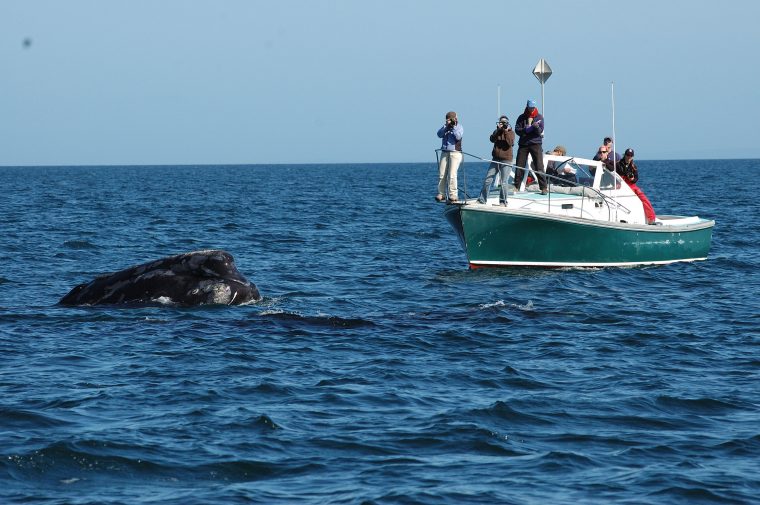
BOSTON, MASS. (July 2020) — The decision by the International Union for Conservation of Nature (IUCN) to uplist the North Atlantic right whale from Endangered to Critically Endangered status on its Red List of Threatened Species reinforces the need for much broader measures to protect these animals from extinction. Only around 400 individual right whales are left on the planet, and the scientific evidence is overwhelmingly clear: North Atlantic right whales are dying needlessly at the hands of humans.
To address this, research scientists at the New England Aquarium’s Anderson Cabot Center for Ocean Life are recommending ship speeds in all United States and Canadian waters be reduced to ten knots or less for vessels of all sizes. Studies show that alerting mariners to the presence of North Atlantic right whales and requesting a voluntary speed reduction does not work, while mandatory and enforced speed restrictions are known to be effective. Additionally, the risks to North Atlantic right whales from entanglements in fishing gear must be lowered by reducing vertical lines in the water and modifying gear to prevent entanglements. More than 40 years of research by New England Aquarium scientists has found that these whales are killed and grievously injured by entanglements with fishing gear that result in the whales drowning, preventing them from feeding, causing them to drag thousands of pounds of gear for thousands of miles, and producing unnecessary and inhumane pain and stress.
It is imperative that the United States and Canada work together to prevent North Atlantic right whales from becoming the first large whale species to go extinct. For every whale we keep from a preventable human-caused death, we preserve a lineage of North Atlantic right whales for future generations.
